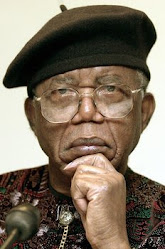
"No family in Delhi , or the whole of India
Rajaswamy Rajagopolan is a career-driven polemicist writer, who may have married a Nigerian wife for a reason other than love, and who harbours a troubling secret. Eunice Rajagopalan is the daughter of a former secretary at the Nigerian High Commission in New Delhi Nigeria
Setting his story against a period of strained relations between Nigeria and India
I found the many characters Onyeka created and the fact that he gave each of them attention, distracting and tiresome at times. In some places, he sort of rambles on, giving background knowledge about a character we need to know little or nothing about. It’s like having flies buzz in front of you when you’re trying to focus on something. It could have been better done. Onyeka’s sentence constructions are not the usual type. He tries to sound different. It’s the kind of thing Arundhati Roy does in The God of Small Things, and it suits this novel in some parts, in others however, it just doesn’t sound right. Towards the end, where the reader is supposed to feel loss, it’s fleeting. Even the grieving of the characters at that point seem rushed in a way. It doesn’t sink in heavily like it should. He doesn’t let us follow the bereaved immediately but distracts us with someone we do not want to read about just then. It’s frustrating. There are a few flaws, but nothing that mars the novel seriously.
The Abyssinian Boy is definitely unique. It’s unique in its storytelling, and in the way it handles the issues it deals with. I think it’s bold and commendable that Nwelue did not choose to write on something familiar, but he chooses instead to go into unfamiliar territory, and then juxtapose the two cultures at the heart of this book, so we can see into lives far away from ours. Onyeka’s debut novel is charming and laudable.



















i hate critics.. they make your work suckkkkkkkkkkkkkkkkkk.... oh... Sorry..
ReplyDeleteThe review is indeed splendid. The novel was interesting.. except as you say.. a few flaws.. But Onyeka Nwelue's first outing is incredibly awesome..
constructive criticism!
ReplyDelete@ Dizzle
ReplyDeleteI'm sorry you hate critics. I don't think I made Onyeka's work suck, if i did, i apologize. It's a review, someone has got to read it and tell you wassup, don't you agree?
@ Latifa
Thanks a lot. Was I a bit harsh?
Balanced review.
ReplyDelete